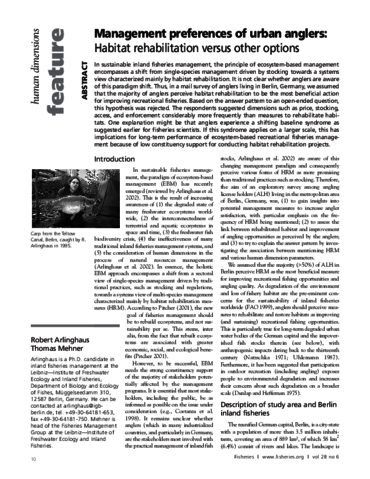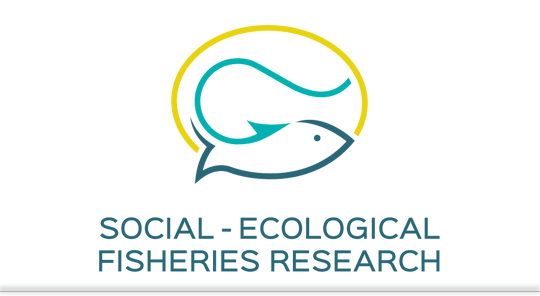In sustainable inland fisheries management, the principle of ecosystem-based managementen compasses a shift from single-species management driven by stocking towards a systems view characterized mainly by habitat rehabilitation. It is not clear whether anglers are aware of this paradigm shift. Thus, in a mail survey of anglers living in Berlin, Germany, we assumed that the majority of anglers perceive habitat rehabilitation to be the most beneficial action for improving recreational fisheries. Based on the answer pattern to an open-ended question,this hypothesis was rejected. The respondents suggested dimensions such as price, stocking, access, and enforcement considerably more frequently than measures to rehabilitate habitats. One explanation might be that anglers experience a shifting baseline syndrome assuggested earlier for fisheries scientists. If this syndrome applies on a larger scale, this has implications for long-term performance of ecosystem-based recreational fisheries management because of low constituency support for conducting habitat rehabilitation projects.
Management preferences of urban anglers: habitat rehabilitation versus other options
Peer-reviewed

Arlinghaus, R., Mehner, T. (2003). Management preferences of urban anglers: habitat rehabilitation versus other options. Fisheries, 28, 10-17
Published
: 2003
Appeared in
: Fisheries, 28, 10-17
